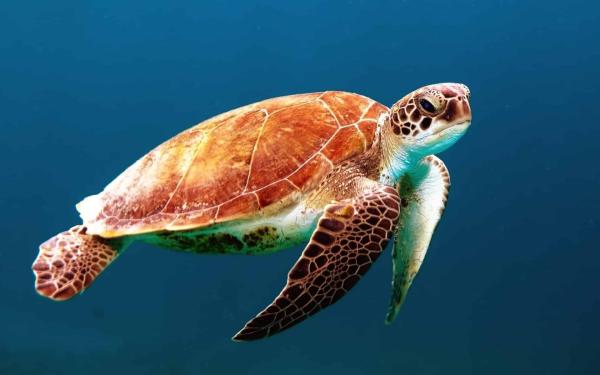Diver Saves Sea Turtle After A Plastic Bag Became Lodged Down Her Throat
- November 25 2017
- 3 min read
Diver Saves Sea Turtle After A Plastic Bag Became Lodged Down Her Throat

Plastic is unnatural. It's toxic. It's no wonder why countries and states around the world are trying to ban plastic products and more importantly plastic bags.
It's been one year since California banned single-use plastic bags and as the Los Angeles Times put it, "the world didn't end." In fact, plastic bags accounted for 3.1 percent of litter collected from the state's beaches this year, which is down from 7.4 percent in 2010. Amidst warnings from plastic bag makers, consumers didn't go broke either from paying just 10 cents for a thicker, legal plastic bag. Even so, plastic litter still remains one of the environment's biggest threats.
We live in a world where it's no longer shocking to come across "plastic islands" like Henderson Island for example. Part of the Pitcairn group, this island is covered by 18 tonnes of plastic with 13,000 new items washing ashore daily. The Guardian reports Henderson Island having the "highest density of anthropogenic debris recorded anywhere in the world." Needless to say, this plastic island paints a poor picture of the wider marine ecosystem.
Threatened Marinelife
Approximately 40 percent of the world's population lives within 62 miles of the coast, yet somehow, many of us have become immune to plastic waste issues. The same however can't be said for University lecturer, Saeed Rashid, 46, who recently was on a trip to the Red Sea when he spotted a Hawksbill turtle in distress. This sea turtle was unable to eat due to an eight-inch plastic bag blocking her airways.
Rashid told the Daily Mail, "I got close to the female and took a few photos of her eating. Then I realized she had a plastic bag in her mouth and in fact wasn't able to eat, she was just nudging the jellyfish clearly in some distress."
Lucky for the female turtle, Rashid was able to wrestle the plastic bag out of her throat. Though almost as soon as the diver pulled the bag out, the turtle tried to eat another plastic bag that floated by.
"I quickly pulled that bag away and she went on to eat a few of the many jellyfish around us, she was clearly very hungry. I've been diving for 20 years and been lucky to travel all over the world and I'm now seeing a massive increase in the amount plastic floating about, I've always collected what I can but I know it's such a small drop in the very real ocean."
It's a "very real ocean" indeed – one that holds about 96.5 percent of all Earth's water, so it's about time governments take action and put more plastic bag bans in place. We can individually collect trash, use reusable bags, and do our part but in the large picture of it all, it's the source of the problem that needs to be targeted.
Gain access to Orders, Tracking, Custom Options and Much More!